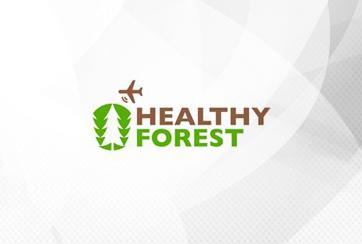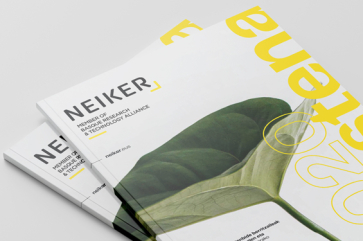We combine our pledge to farm sustainability and effectiveness with work to improve genetics, while keeping a watch on and controlling forestry diseases.
We have also designed programmes to fight soil erosion and degradation, as well as to reuse waste within our forestry bioeconomy strategy.
We therefore have an ambitious R&D&I plan to improve our forestry systems, which develops four basic lines of work:
- Forestry health
- Alternative species
- Timber quality
- Reactivation of the genetic improvement plan
All based on sustainability parameters and with special attention to the effects of climate change.

Forestry research is one of our strategic lines.
Our lines of research in forestry are as follows:
Forestry health
Forestry health
We work to diagnose and analyse the risk of forestry diseases and to develop methods of phytosanitary defence, including biological, reducing the application of phytosanitary treatments involving chemical synthesis capable of causing undesired consequences in human health and the environment to the greatest possible extent. This line also includes the development of early detection systems for forestry diseases and their use to reduce the forestry decline caused by pathogenic and invasive agents.
Mejora
Genética
Mejora Genética
Identificamos genes y marcadores genéticos de interés, especialmente los relacionados con la calidad de la madera o con la resistencia a enfermedades, para analizar su variabilidad genética y efectuar la caracterización molecular de especies y de genotipos seleccionados.
Production of quality timber
Production of quality timber
We measure the density of pinus radiata wood, using non-destructive methods applicable to standing trees. With this information, we select materials to carry out provenance/progeny tests enabling us to separate genetic effects from those caused by the season (environment). We also work to obtain molecular characterisation of the genes involved in the formation of young and adult wood, thanks to which we can make an early selection of the most suitable plants.
Nuevas Especies
Forestales
Nuevas Especies Forestales
Identificamos las especies más adecuadas para cada lugar valorando simultáneamente aspectos como los servicios ecosistémicos (producción, protección y culturales) o su resistencia a los riesgos que sufren los ecosistemas forestales (tormentas, sequía, erosión, deslizamientos de tierra, incidencia de plagas y enfermedades, etc.). también estudiamos el desarrollo a medio largo plazo de especies alternativas evaluando, además de su crecimiento, su interacción con otros organismos y el entorno.
Genetic improvement
Genetic improvement
We identify interesting genes and genetic markers, especially those related to the quality of the wood or its resistance to disease, in order to analyse its genetic variability and proceed with the molecular characterisation of selected species and genotypes. This enables us to select individual woods of desired characteristics for their incorporation to the genetic improvement plan.
Climate change
Climate change
We develop tools across all lines of research making it possible to measure the plants’ capacity of resistance to the lack of water while optimising methods to multiply and regenerate plants coming from adult trees by means of protocols such as organogenesis and embryogenesis.
New forestry species
New forestry species
We identify the most adequate species for each location, simultaneously assessing aspects such as ecosystem services (production, protection and cultural), their resistance to the risks affecting forestry ecosystems (storms, drought, erosion, land slips, pest attacks and disease, etc.) and to climate change itself. We also study the medium to long term development of alternative species while assessing, apart from their growth, their interaction with other organisms and the environment.
Sustainability
Sustainability
We develop forest management methods combining the following objectives: (i) social progress that recognises everyone’s needs; (ii) effective environmental protection; (iii) sensible and intelligent use of natural resources; and (iv) maintenance of high and steady levels of economic growth and employment.


PUBLICATIONS
We produce scientific work recognised nationally and internationally in our areas of research.

THESIS
We lead or participate in studies that help to improve, corroborate or propose measures for process optimisation and improvement.

SPECIALISED GROUPS
We create networks with an eminently applied vocation and focussed on transfer of the knowledge generated.
The NEIKER Plant Research team develops R&D&I projects to optimise forestry production systems and guarantee forest health.


Would you like more information?
We have a highly experienced team who are here to help you.


